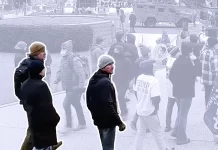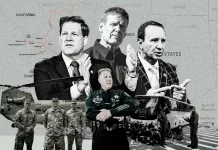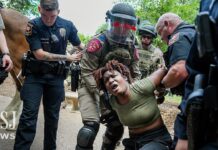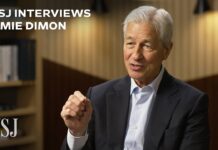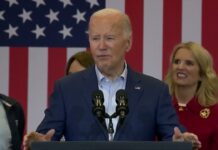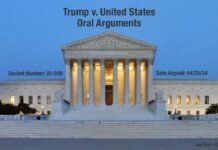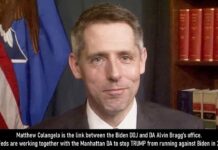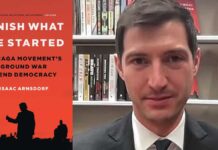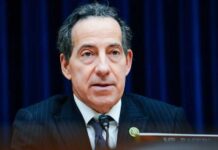Fox News host Mark Levin reacts strongly to the Special Counsel Robert Hur’s report on Joe Biden’s classified documents on ‘Life, Liberty & Levin.’
Our investigation uncovered evidence that President Biden willfully retained and disclosed classified materials after his vice presidency when he was a private citizen. These materials included (1) marked classified documents about military and foreign policy in Afghanistan, and (2) notebooks containing Mr. Biden’s handwritten entries about issues of national security and foreign policy implicating sensitive intelligence sources and methods.
FBI agents recovered these materials from garages, offices, and basement den in Mr. Biden’s Wilmington, Delaware home. However, for the reasons summarized below, we conclude that the evidence does not establish Mr. Biden’s guilt beyond a reasonable doubt.
Mr. Biden regularly wrote notes by hand in notebooks. Some of these notes related to classified subjects, including the President’s Daily Brief and National Security Council meetings, and some of the notes are themselves classified.
“Just found all the classified stuff downstairs.” At the time, he was renting a home in Virginia, where he met his ghostwriter to work on his second memoir. Downstairs from where they met was Mr. Biden’s office, where he stored his papers.
He moved out of the Virginia home in 2019, consolidating his belongings in Delaware-where FBI agents later found marked classified documents about the Afghanistan troop surge in hi garage.
We have also considered that, at trial, Mr. Biden would likely present himself to a jury, as he did during our interview of him, as a sympathetic, well-meaning, elderly man with poor memory.
Based on lur direct interactions with and observation of him, he is someone for whom many jurors will want to identify reasonable doubt.
It would be difficult to convince a jury that they should convict him-by then a former president well into his eighties-of a serious felony that requires a mental state of willfulness.
Notebooks containing classified information. FBI agents recovered from unlocked drawer in the office and basement den of Mr. Biden’s Delaware home a set of notebooks he used as a vice president.
Evidence shows that he knew the notebooks contained classified information.
Some evidence also suggests Mr. Biden knew he could not keep classified handwritten notes at home after leaving office. Mr. Biden, who had decades of experience with classified information, was deeply familiar with the measures taken to safeguard classified information and the need for those measures to prevent harm to national security.
Asked about reports that former President Trump had kept classified documents at his home, Mr. Biden wondered how “anyone could be that irresponsible” and voiced concern ‘[w]hat data was in there that may compromise sources and methods.”
shared the specific passage with his ghostwriter, Mr. Biden knew the passages were classified and intend to share classified information.
But on the facts of this case, “the fundamental interests of society” do not “require” criminal charges against Mr. Biden. For this additional reason, applying the Principles of Federal Prosecution set forth in the Justice Manual, we decline prosecution.
The practices of retaining classified material in unsecure locations and reading classified materials to one’s ghostwriter present serious risks to national security, given the vulnerability of extraordinarily sensitive information to loss or compromise to America’s adversaries. The Department routinely highlights such risks when pursuing classified mishandling prosecutions. But addressing those risks through criminal charges, the only means available to this office, is not the proper remedy here.
Mr. Biden’s ghostwriter and destruction of evidence. After learning of the special counsel’s appointment in this matter, Mr. Biden’s ghostwriter deleted audio recordings he had created of his discussions with Mr. Biden during the writing of Mr. Biden’s 2017 memoir. The recordings had significant evidentiary value. After telling the Special Counsel’s Office what he had done, the ghostwriter turned over his computer and external hard drive and consented to their search.
Based on the FBI’s analysis. It appears the FBI recovered all deleted files relating to the memoir, though portions of a few of the files appear to be missing, which is possible when forensic tools are used to recover deleted files.
The ghostwriter kept, and did not delete or attempt to delete, his near-verbatim transcripts of the recordings and produced those transcripts to us, including for each of the incomplete recovered files.
White the ghostwriter admitted that he deleted the recording after he learned of the special counsel’s investigations, the evidence falls short of proving beyond a reasonable doubt that he intended to impede and investigation, which is the intent required by law.
In 2020, the Executive Secretary team raised concerns about the number of classified briefing books that Mr. Biden had not returned, and the fact that, even when they were returned, some of the content was missing.
In 2010, the Executive Secretary team raised concerns about the number of classified briefing books that Mr. Biden had not returned, and the fact that, even when they were returned, some of the content was missing.
These concerns were raised with [Dereck] Hogan as well as Mr. Biden’s personal aide and military aides. E-mails indicate that the Executive Secretary team alerted Hogan to the issue at least in June 2010, when nearly thirty of the classified briefing books from the first six months of 2010 were outstanding, and in August 2010, when Mr. Biden failed to return Top Secret, Sensitive Compartmented Information (also referred to as “codeword”) contents of a classified briefing book that he had received during a trip to the Hamptons, in New York. We were unable to determine whether these material were ever recovered, although they were likely found and disposed of by military aides or naval enlisted aides.
During the Obama administration, Mr. Biden’s staff regularly collected and reviewed his notecards to determine if they contained classified information and so they could eventually be archived as presidential records. At the end of the administration, Mr. Biden’s staff arranged for him to store most of his classified notecards, which contained note on the President’s Daily Brief and other classified information, in a SCIF at the National Archives. In contrast, Mr. Biden held his notebooks close, and his staff did not review them. After the administration, Mr. Biden brought his notebooks home with him and stored them in unsecured locations that were not authorized to store classified information-even though the notebooks, like the notecards, contained classified information.
According to a staffer involved in the project, Mr. Biden wanted to take copies of the notecards “so that he didn’t have to go to [the National Archives] every day to help write this book.”
In late September 2016, [Mark] Zwonitzer e-mailed Mr. Biden’s chief of staff to schedule an interview with Mr. Biden. Zwonitzer said he wanted to cover “very specific topics topics and time frames” and said he would “tell you exactly what ground/time period I want to cover in the session so the VP could have relevant notes/dairies etc., with him when we talk.”
US Dept. of Justice | Special Counsel’s Office | Feb. 5


